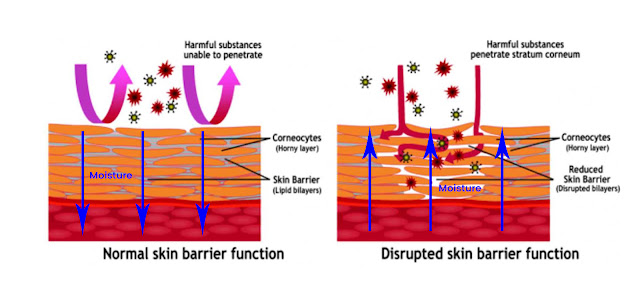Should My Night-Cream "Sting"? | Crmsnchrysnths
 |
| Photo Credited to 123RF |
One night, I was applying a new night cream I haven't tried before. After a few minutes of letting that cream sit on my face, I felt a kind of like a tingling and stinging sensation. I once read that, that feeling is actually good because that just only means that the product is working and is deeply penetrating on your skin.
And so I made a research once again.
I have read on Paula Begoun, The Cosmetic Cop that what I know is actually a myth.
Of course, I read another article regarding this.Myth 14: This common myth couldn’t be further from the truth. That familiar tingling sensation is actually just your skin responding to irritation, resulting in inflammation. Products that produce that sensation can actually damage your skin’s healing process, make scarring worse, cause collagen and elastin to break down, and increase the growth of bacteria that cause pimples.Ingredients such as menthol, peppermint, camphor, and mint are counter-irritants. Counter-irritants are used to induce local inflammation in an effort to reduce inflammation in deeper or adjacent tissues. In other words, they substitute one kind of inflammation for another, which is never good for skin. Irritation or inflammation, no matter what causes it or how it happens, impairs the skin’s immune and healing response. And although your skin may not show it or doesn’t react in an irritated fashion, if you apply irritants to your skin the damage is still taking place and is ongoing, so it adds up over time.
“No pain, no gain is a terrible motto when dealing with your face,” says Lucile White, MD, a dermatologist in Houston, Texas. Skin care should not sting, tingle, or burn on a daily basis. If it does, you’ll get redness, peeling, and flaking. “Those are signs of chronic inflammation,” says Karyn Grossman, MD, a dermatologist, who practices in New York and Santa Monica. In other words, your skin ain’t happy, and inflamed skin will develop a cascade of other issues — dryness, tightness, and increased sensitivity.
So after all the articles I've read, I felt bothered. But actually, that little or small sting sensation is okay but if it causes your face to turn so red, that is another story.
Overall, I think you should observe your skin and see what does that sting-sensation do because actually everything depends on what skin types or skin conditions you have.



Comments
Post a Comment